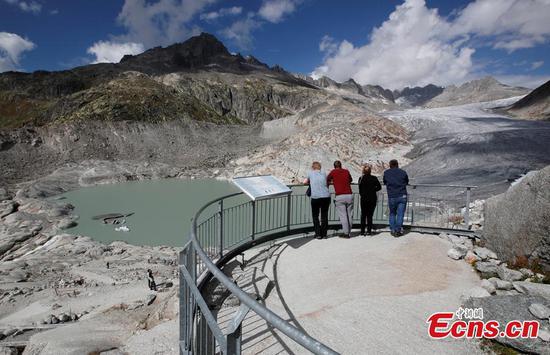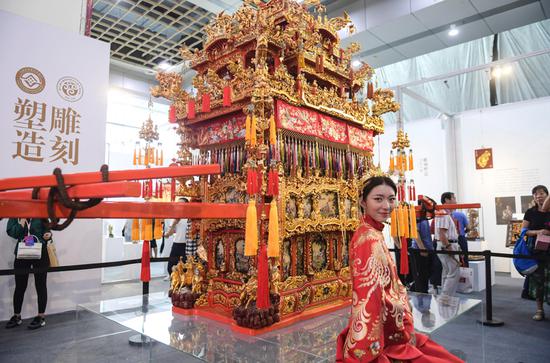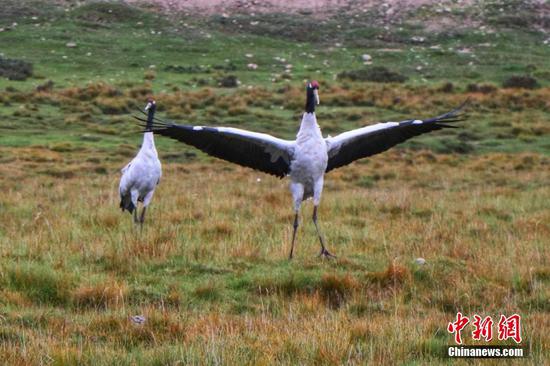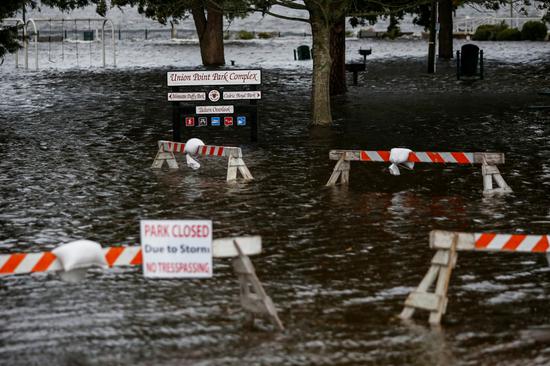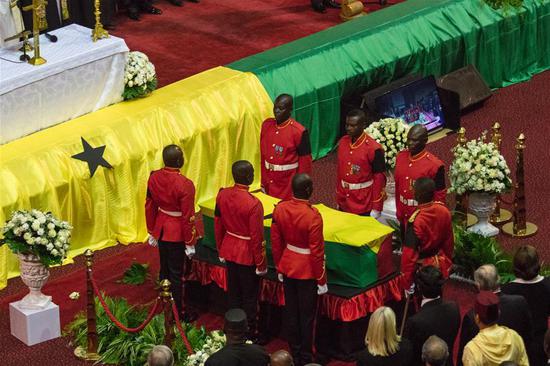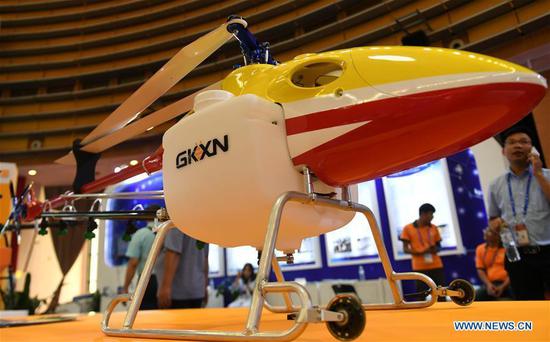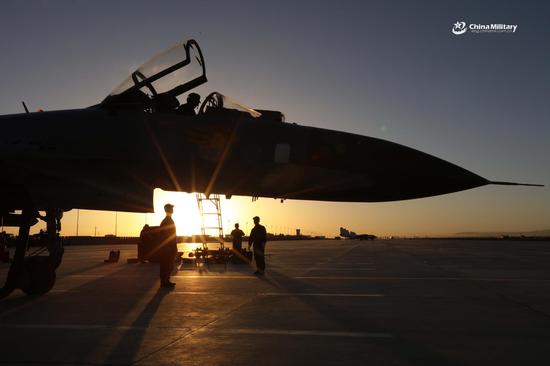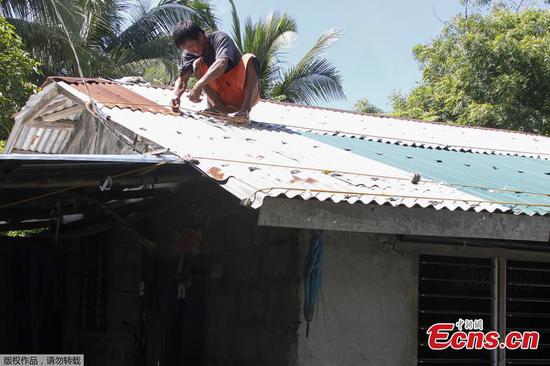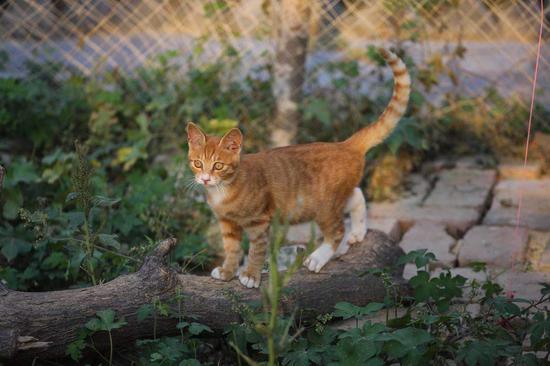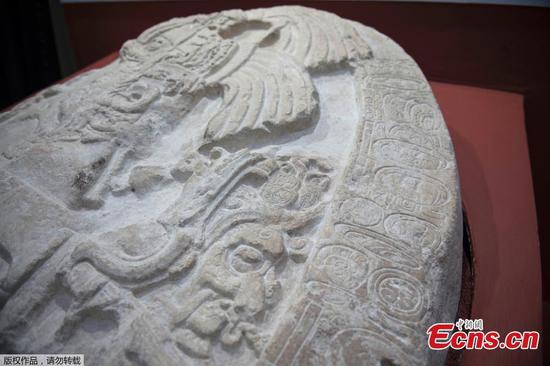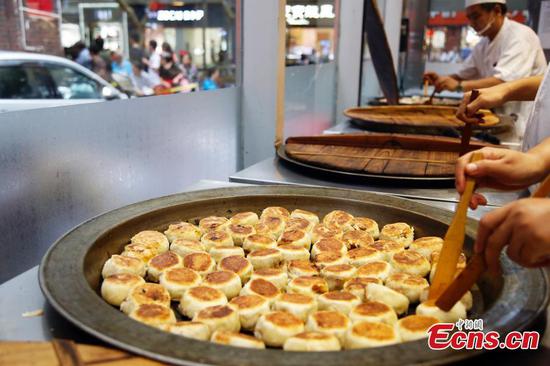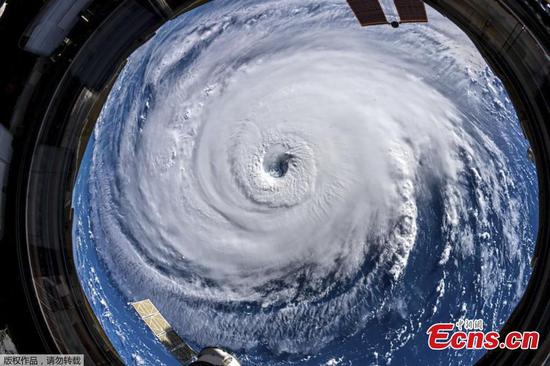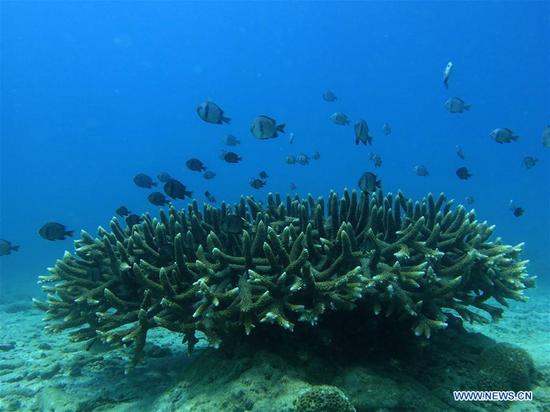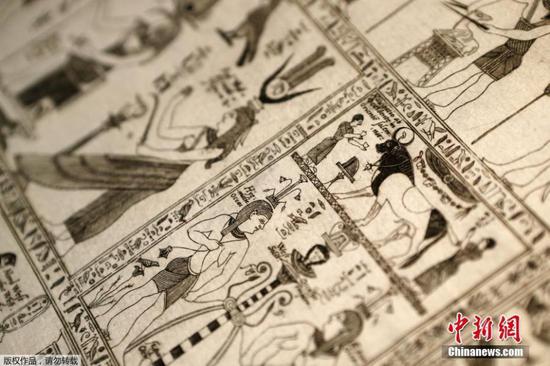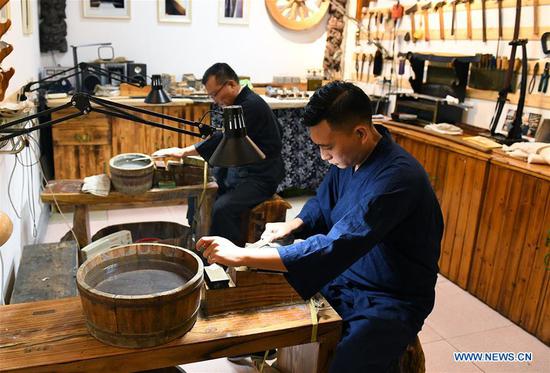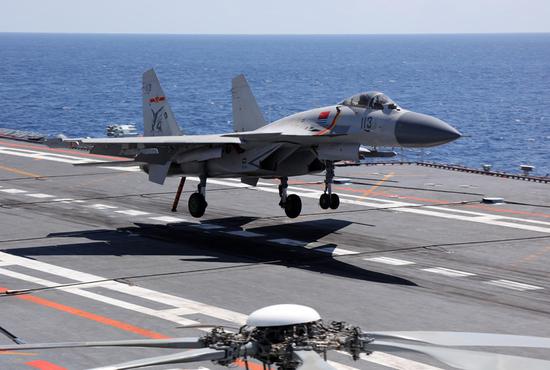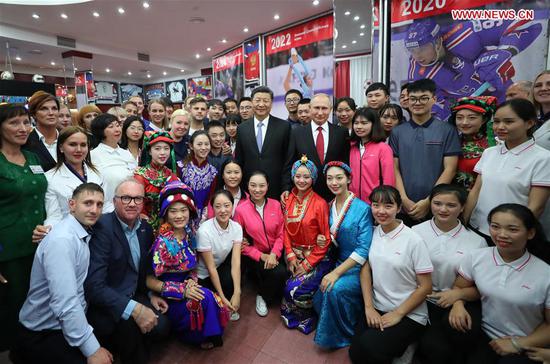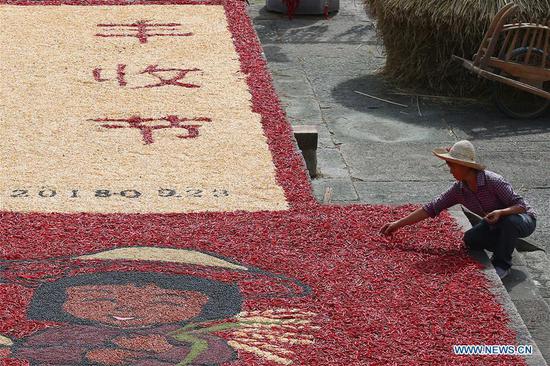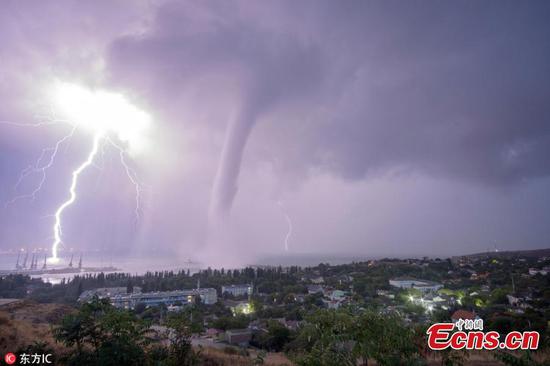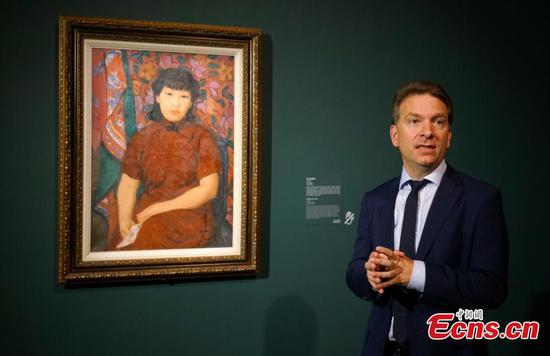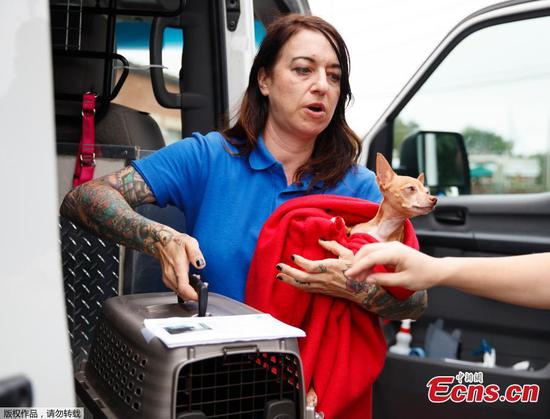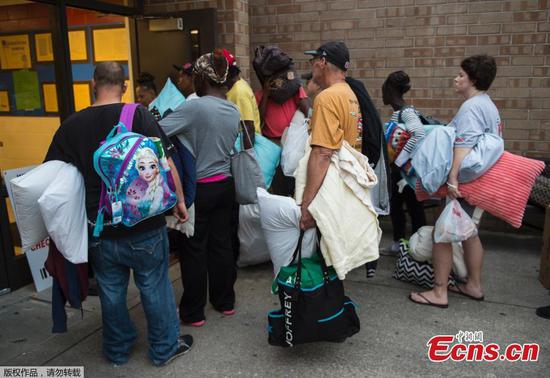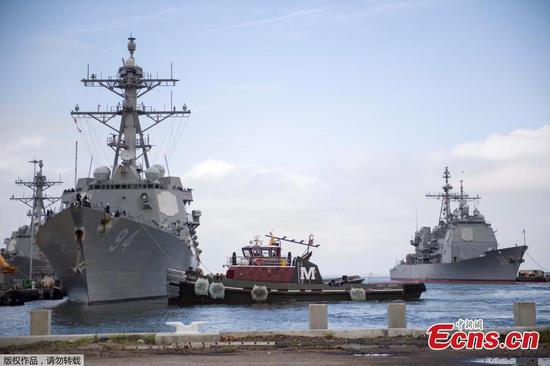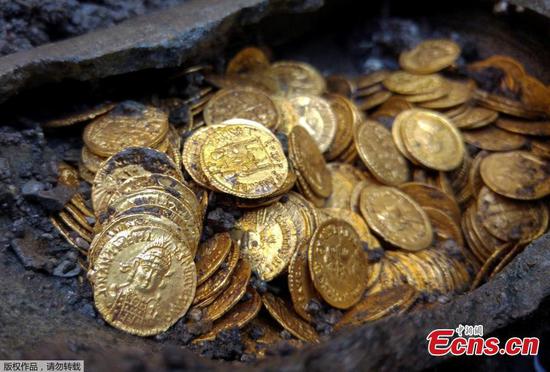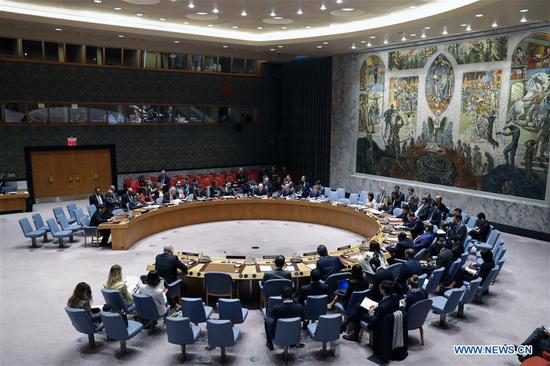
Photo taken on Sept. 11, 2018 shows a United Nationa (UN)'s Security Council meeting on the situation in Syria's Idlib province at the UN headquarters in New York. (Xinhua/Li Muzi)
As the Syrian army and allied forces have been preparing for one last battle against the rebels in Idlib province in northwestern Syria, the ultra-radical rebels seem to have one more chance to surrender.
Over the past couple of months, the Syrian government forces have urged the rebels in Idlib province to lay down their weapons and agree to a reconciliation deal with the government.
Some rebel groups seem to have been okay with the offer, but not the ultra-radical ones of the al-Qaida-linked Nusra Front and like-minded groups.
The government officials in Syria have repeatedly said that the reconciliation is a priority in Idlib, or else there will be a wide-scale offensive to retake Idlib, which is the last major rebel stronghold in Syria.
Activists had said that the Nusra Front, otherwise known as Hayat Tahrir al-Sham, Arabic for the Levant Liberation Committee (LLC), rounded up and killed tens of the reconciliation advocates in Idlib.
The Nusra leaders have also stressed their intention to fight the government forces along with other ultra-radical groups in that province in northwestern Syria.
The government forces kept sending reinforcements and military gears to a triangle of areas combining the northern countryside of Hama province in central Syria, the southern countryside of Idlib and the mountains of the Latakia province in northwestern Syria.
Still, the government has kept the priority for reconciliation, but the faltering efforts have left no choice and the military option remained number one in such case.
During this process, the Western powers and Turkey have expressed dismay and rejection of such an offensive in Idlib, talking about a possible new influx of refugees to Turkey and Europe and the negative repercussion of a new wave of refugees, taking into consideration that foreign jihadists might infiltrate the ranks of civilians and reach Europe.
Over three million Syrians live in Idlib, including those who had left other Syrian areas with relative rebels to Idlib.
Given the fact that Turkey has been part of a tripartite effort along with Iran and Russia to establish de-escalation zones in northern Syria as part of the Astana process between the three powers, Ankara has warned of a humanitarian catastrophe in case of such an attack while stressing at the same time that terrorists should not be tolerated.
The Syrian Observatory for Human Rights war monitor has previously said that Turkey attempted to pressure the LLC to dissolve itself but to no avail.
Last Friday, the leaders of Iran, Russia and Turkey met in Iran for talks on Idlib and on the same day the UN Security Council held a session on Idlib.
During the summit, Recep Tayyip Erdogan proposed another cease-fire in Idlib, but such a proposal wasn't met with satisfaction from the other two leaders, who were largely in favor of a military campaign to resolve the situation in Idlib.
He later said that the terror-labeled groups should turn in their weapons, and this specific detail seemed like another opportunity taken by Turkey to try to do something ahead of the anticipated military operation in Idlib, which is fully backed and supported by Iran and Russia, both are the key allies of the Syrian government.
After the summit in Iran, activists of the Observatory and also the state news agency SANA reported shelling targeting rebel positions in Idlib.
But on Wednesday, the Observatory said the airstrikes that were targeting the rebels' positions had stopped and the military operation hasn't started.
On Thursday, the Observatory said that 185 truckloads of weapons and military gears entered areas in Idlib from Turkey under the supervision of the Turkish forces, which maintain 12 observation points in Idlib and nearby Hama countryside.
The UK-based watchdog group said the missiles were among the weapon shipment that entered Idlib over the past couple of days amid the absence of Russian and Syrian airstrikes.
The shipment entered the Turkey-backed al-Jabha al-Wataniya lil-Tahrir, or the National Front for Liberation, which was formed on August 1 from five rebel factions operating in Idlib and the northern countryside of Hama.
Pro-government al-Watan newspaper on Thursday cited Russian media report by Sputnik as saying that the Turkish side has offered clarification about the military reinforcement that entered Idlib over the past couple of days.
It said that this support aims to "use military force against the Nusra Front if it rejected to dissolve itself and leave the areas of moderate rebels," without specifying the new destination for those militants.
Russian Special Presidential Envoy for Syria Alexander Lavrentyev said he believes that terrorists' surrender would be the best option for solving the situation in the Idlib.
He said the postponement of the military operation against the rebels in Idlib relies on "to what extent the international community members could assist in the separation of moderate opposition from radicals in Idlib."
He also stressed that it's the responsibility of Turkey now to separate the terrorist groups from the moderate ones.
"The Idlib province, as it was agreed one and half years ago, is a zone of certain responsibility of Turkey, the member of Astana process, and it's their responsibility to separate the moderate opposition from the extremists," Lavrentyev said.
So in light of the recent development, the anticipated operation is believed to have been pushed back to a later time this month to give a chance for the efforts to separate the terror groups from other rebel factions, according to Maher Ihsan, a Syrian analyst.









